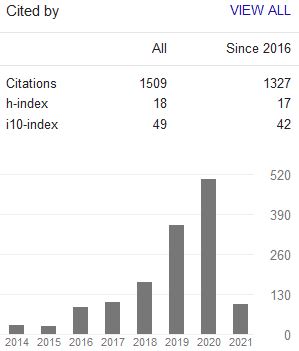MUSLIM POLITICS AND DEMOCRACY: The Case of Indonesia
Abstract
Keywords
Full Text:
PDFReferences
Beetham, David, et. al. International IDEA Handbook on Democracy Assessment. The Hague: Kluwer Law International, 2002.
Harriss, John, et. al. (eds.). Politicising Democracy, The New Local Politics of Democratisation. Houndmills, Basingstoke: Palgrave, 2004.
Khan, Mushtaq H. “Markets, States and Democracy: Patron-Client Networks and the Case for Democracy in Developing Countries.†Democratization, Vol. 12, No. 5, December 2005: pp. 707-724.
Liddle, William R. (ed.). Crafting Indonesian Democracy. Jakarta: PPWLIPI, Ford Foundation and Mizan Pustaka, 2001.
Prasetyo, Stanley, et. al. Indonesia’s Post-Soeharto Democracy Movement, Jakarta: Demos, 2003.
Priyono, A.E, et. al. (eds.). Making Democracy Meaningful, Problems and Options in Indonesia (Forthcoming). Jakarta and Singapore: Demos and ISEAS, 2007.
Tabellini, Guido, “Economic Reforms Proceed Democracyâ€. Jakarta Post. September 15, 2005.
Törnquist, Olle. Dilemmas of Third World Communism: The Destruction of the PKI in Indonesia. London: Zed, 1984.
----------. What’s Wrong with Marxism? Vo.1: On Capitalists and State in India and Indonesia. Vol. 2: On Peasants and Workers in India and Indonesia. New Delhi: Manohar, 1989 & 1991.
----------. “Assessing Democracy from Below: A Framework and Indonesian Pilot Studyâ€. Democratization, Vol. 13, No. 2, April 2006, pp. 227-255.
van Bruinessen, Martin. “Post-Soeharto Muslim Engagements with Civil Society and Democratization†in Hanneman Samuel & Henk Schulte Nordholt (eds.). Indonesia in Transition, Rethinking ’Civil Society’, ’Region’ and ’Crisis’. Yogyakarta: Pustaka Pelajar, 2004.
Wajidi, Farid. “NU Youth and the Making of Civil Society: Notes from the Fieldâ€, in Hanneman Samuel & Henk Schulte Nordholt (eds.). Indonesia in Transition, Rethinking ’Civil Society’, ’Region’ and ’Crisis’.
Electronic Sources
http://www.demos.or.id
http://www.kitlv.nl/renegotiating.html
http://www.worldbank.org./wbi/governance
DOI: 10.15642/JIIS.2007.1.1.1-17
Refbacks
- There are currently no refbacks.
Indexed by:
Journal of Indonesian Islam (ISSN 1978-6301 and E-ISSN 2355-6994) is published by the Postgraduate Program (PPs) and the Institute for the Study of Religion and Society (LSAS), State Islamic University (UIN) of Sunan Ampel Surabaya.
Journal of Indonesian Islam by http://jiis.uinsby.ac.id/index.php/JIIs/index is licensed under a Creative Commons Attribution-ShareAlike 4.0 International License.
Copyright ©2020 State Islamic University (UIN) of Sunan Ampel Surabaya. Powered by Public Knowledge Project OJS.







